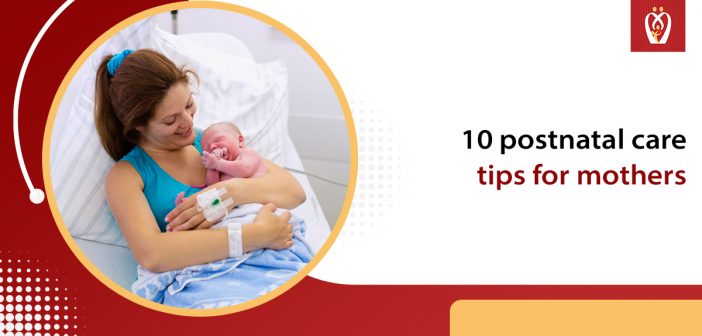10 postnatal care tips for mothers
Postnatal care tips for mothers- It is generally known that the mother’s initial postpartum phase is critical and needs round-the-clock care for up to eight weeks. Nurturey Pink book tools help you throughout the process of postnatal care, ensuring everything is on track.
PNC, or postnatal care, is specialized care for the mother that starts just after birth and lasts for around eight weeks. Prevention, elimination, early identification, and treatment of health issues (if any), breastfeeding and vaccination counseling, an interactive session on the significance of birth spacing and maternal nutrition, and so on are all included in postnatal care.
Midwifery is an important part of postnatal care. If the mother and baby are doing well, she is released home between 6 and 24 hours following birth. Midwives and/or support workers assist the mother in adjusting to her new life with the baby. This usually includes feeding and caring for the infant, as well as providing emotional support.
Get as much sleep as possible
After giving delivery, you will be fatigued. To make matters worse, your clock will never keep up with the infants! They need feeding and changing every three to four hours. Sleep while the baby naps and outsource other home tasks as much as possible.
Diet and nutrition should be prioritized
You’ll be preoccupied with your baby’s needs, but don’t forget about yourself. Because exercise isn’t going to be a priority right now, try to remain in shape by controlling what you eat. Stay away from overly high-calorie meals during the postnatal care period.
Find strategies to keep yourself active
Staying active not only helps you shed the weight you acquired during pregnancy, but it also helps you cope with stress. Get some exercise by going for a stroll every day, even if it’s just for a few minutes. Women believe they shouldn’t work out for six months following a caesarean section. That, however, is not the case. A mother who has had a normal birth may begin exercising on the first day, and a mother who has had a C-section can begin exercising after four days. Breathing techniques, pelvic floor muscle exercises, and low-intensity post-pregnancy workouts are all good places to start. But only after consulting with a physician.
Don’t be concerned about baby fat
It’s tough to get rid of baby fat, particularly on the lower abdominal. To reduce weight, stick to a balanced diet and a regular exercise routine, but don’t stress over it. It’s only in celebrity magazines that you can lose baby fat in a flash, so be patient.
Keep an eye out for ‘baby blues’
Postpartum depression is a genuine thing. For the first 10 days, you will be agitated, irritable, and tearful. Because of hormonal fluctuations, this is typical. However, if you experience additional symptoms such as a loss of appetite, anxiety, feelings of despair, fast weight loss or increase, sleep problems, or a lack of interest in the baby, you should get care for postpartum depression.
Do not be afraid to contact a physician
During postnatal care, a new mother’s body is fragile. Don’t forget to go to the doctor to get your sutures and wounds checked. Consult a doctor right away if you have a fever, shivering, disorientation, pain, or discomfort. In the event of a C-section, you must use more caution.
Breastfeeding
Breastfeeding is a natural process that occurs after a baby is born. If you don’t receive milk right away, don’t worry. For some mothers, it takes time. Be patient and experiment with various feeding positions for your baby. Apply a cold compress to your breasts and massage them if they feel engorged. If your infant isn’t latching on correctly, get help from your midwife. After feeding, thoroughly rinse your breasts and, if required, use a feeding cushion.
Skincare
Some mothers may have skin issues such as acne and a change in colour as a result of hormone imbalance. Do not be concerned; it will pass quickly. Drink plenty of water and use a moisturiser twice a day.
Bleeding after birth
You may have bleeding for up to two days after birth, and you may not have a period for months or until your baby is breastfed. Don’t be concerned. Maintain a clean genital region by washing it with lukewarm water. Your normal menstruation cycle may begin 6 months following the birth of your child.
After a Caesarean
If you’ve had a caesarean section, be cautious with the sutures during postnatal care. When handling your infant, don’t put any pressure on it. Wipe the area with warm water to keep it clean. If you notice a bad odour or the sense of things pouring out, see a doctor right away
Parenthood is a fantastic stage in life, so take use of it. It is okay to make minor errors. You may take advice, but you should follow your intuition. Remember that you can never go wrong as a mother. Visit www.nurturey.com for more information on pregnancy, prenatal tests, prenatal vitamin requirements, foods to eat, what to expect, and much more.







